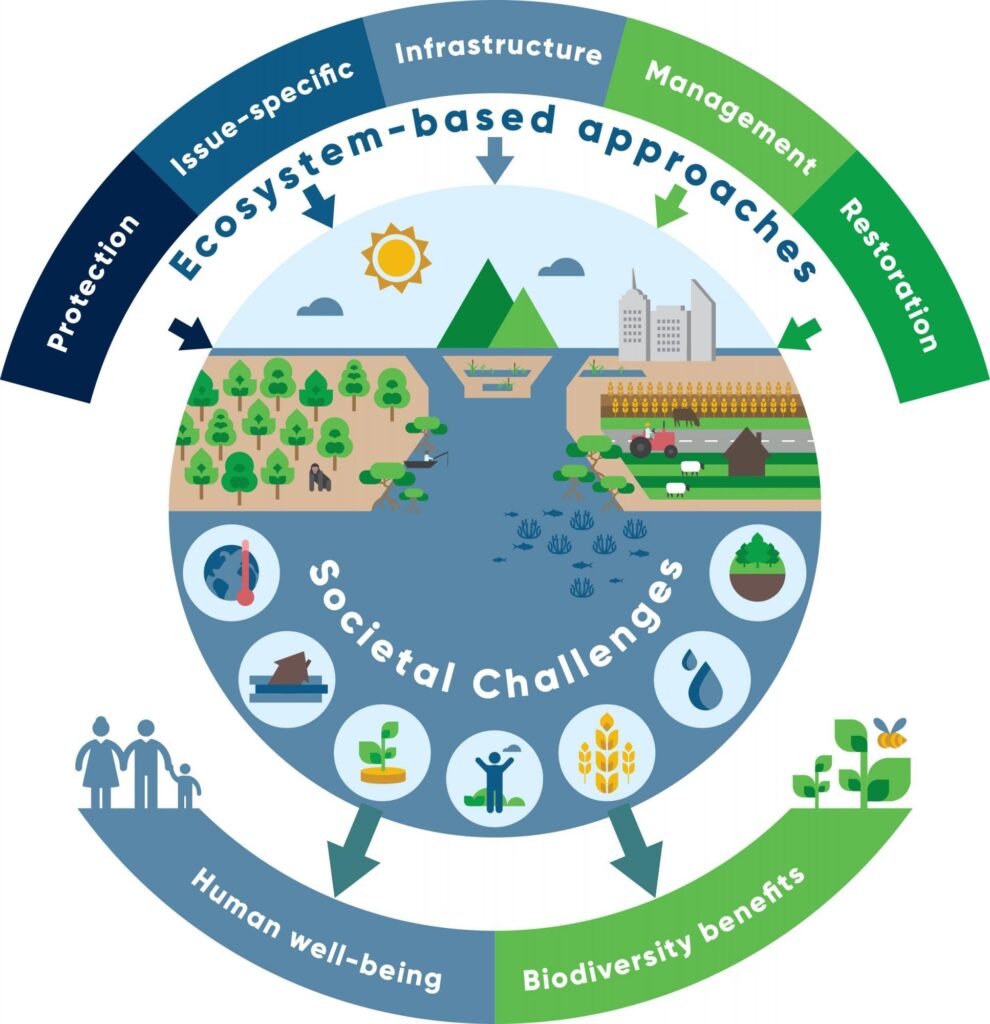
The water, environment, and climate change crisis pose significant challenges to societies around the world, affecting ecosystems, livelihoods, and overall well-being. In response to these challenges, there has been a global shift towards embracing nature-based solutions as a sustainable and cost-effective means to address water scarcity, environmental degradation, and climate change impacts. This article explores the progress made in promoting nature-based solutions, with a focus on Uganda, and highlights innovative approaches to scale up these solutions for resilient water supply systems, improved livelihoods, and entrepreneurship opportunities.
Nature-Based Solutions in Uganda and Globally.
Uganda, like many other countries, faces the adverse effects of climate change, including unpredictable rainfall patterns and increased frequency of extreme weather events. In response to these challenges, there has been a growing recognition of the importance of nature-based solutions in enhancing water harvesting and storage, integrated water resources management, and the protection of ecosystems.
One notable initiative in Uganda is the promotion of sustainable land management practices, such as agroforestry and watershed restoration, to improve water retention in the soil and prevent soil erosion as seen with the NWSC Tree-Volution campaign. Globally, initiatives like the Bonn Challenge aim to restore 350 million hectares of deforested and degraded land by 2030, contributing to improved water cycles and enhanced biodiversity.
Innovative Approaches for Scaling Up Nature-Based Solutions.
To scale up nature-based solutions effectively, innovative approaches are essential. One such approach is the integration of green infrastructure into urban planning, including the development of green roofs, permeable pavements, and urban green spaces. These measures not only enhance water absorption but also contribute to temperature regulation and improved air quality.
In rural areas, the adoption of nature-based solutions involves community-driven projects that focus on sustainable agriculture, reforestation, and the restoration of degraded wetlands. These initiatives not only provide communities with a resilient water supply but also create employment opportunities and improve overall livelihoods.
Accelerating Water and Environment Business Incubation.
Promoting entrepreneurship and business incubation in the water and environment sectors is crucial for the sustainable implementation of nature-based solutions. Governments, NGOs, and private enterprises can collaborate to support startups and small businesses that focus on eco-friendly technologies, water management solutions, and sustainable agriculture practices.
Research and Innovations for Climate Adaptation.
As climate change continues to pose challenges, there is a pressing need for research and innovations to develop and strengthen climate adaptation strategies. This involves investing in climate-resilient technologies, early warning systems, and capacity-building programs to empower communities to adapt to changing climatic conditions.
Closing the Implementation Gap.
Closing the implementation gap for water, sanitation, hygiene, environment, and climate change requires a multi-faceted approach. Governments, international organizations, and communities must collaborate to develop and implement policies that prioritize nature-based solutions. Additionally, capacity-building programs and awareness campaigns can empower local communities to actively participate in sustainable water and environmental management.
Broadening Understanding and Integration.
Nature-based solutions have emerged globally as one of the most sustainable and cost-effective ways to address the interconnected challenges of water, environment, and climate change. By broadening the understanding of the importance of these solutions, we can integrate communities, nature, and heritage into a harmonious relationship. This integration not only ensures the conservation of ecosystems but also promotes the long-term well-being of societies and the planet.
In summary, nature-based solutions offer a holistic and sustainable approach to addressing the water, environment, and climate change crisis. While progress has been made globally and in Uganda, there is still much work to be done to scale up these solutions and ensure their effective implementation. By fostering innovation, supporting entrepreneurship, and investing in research and development, we can build a resilient future where communities thrive in harmony with nature. It is through such concerted efforts that we can ‘fix’ the broken ecosystem and create a legacy of sustainability for generations to come.


